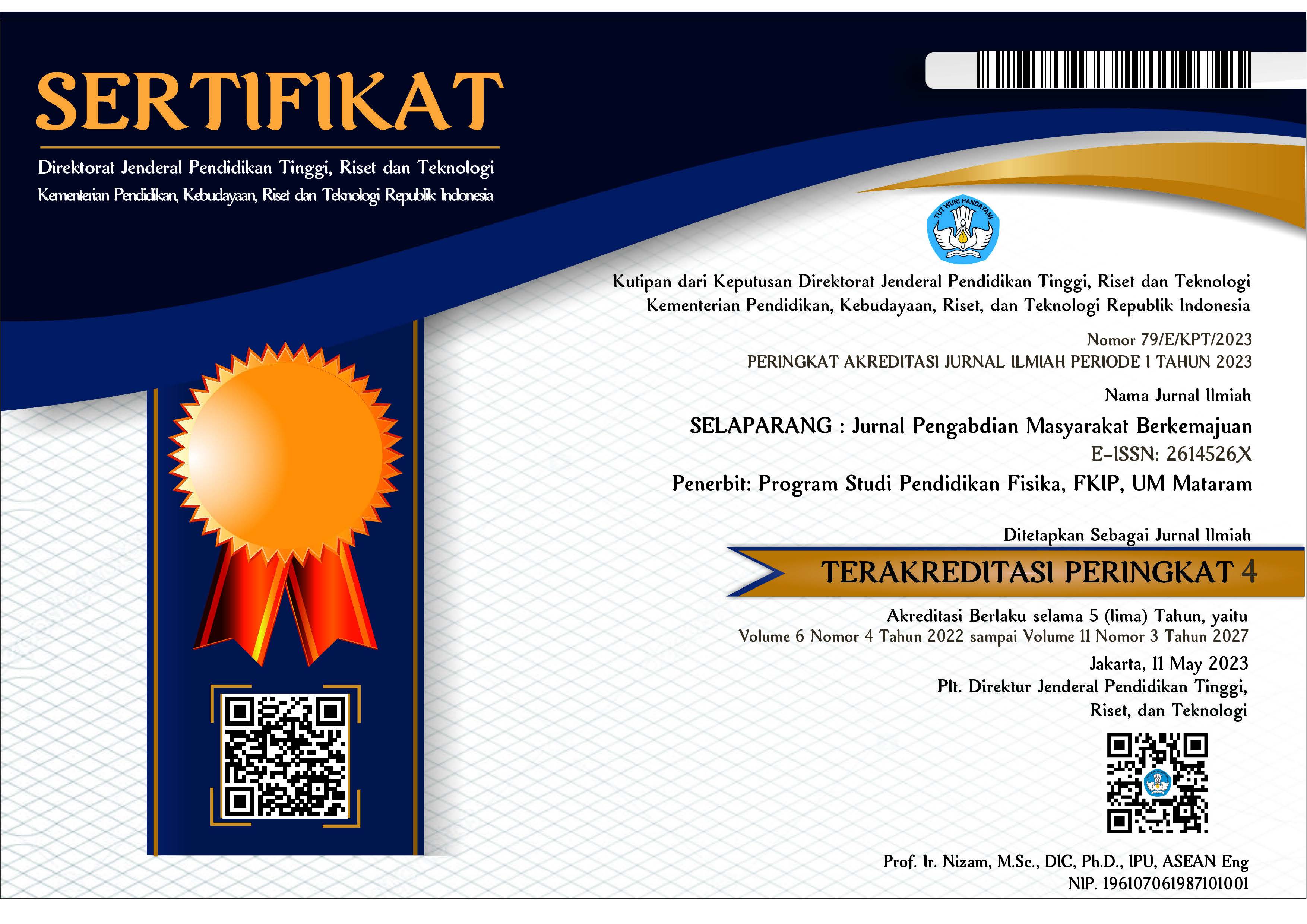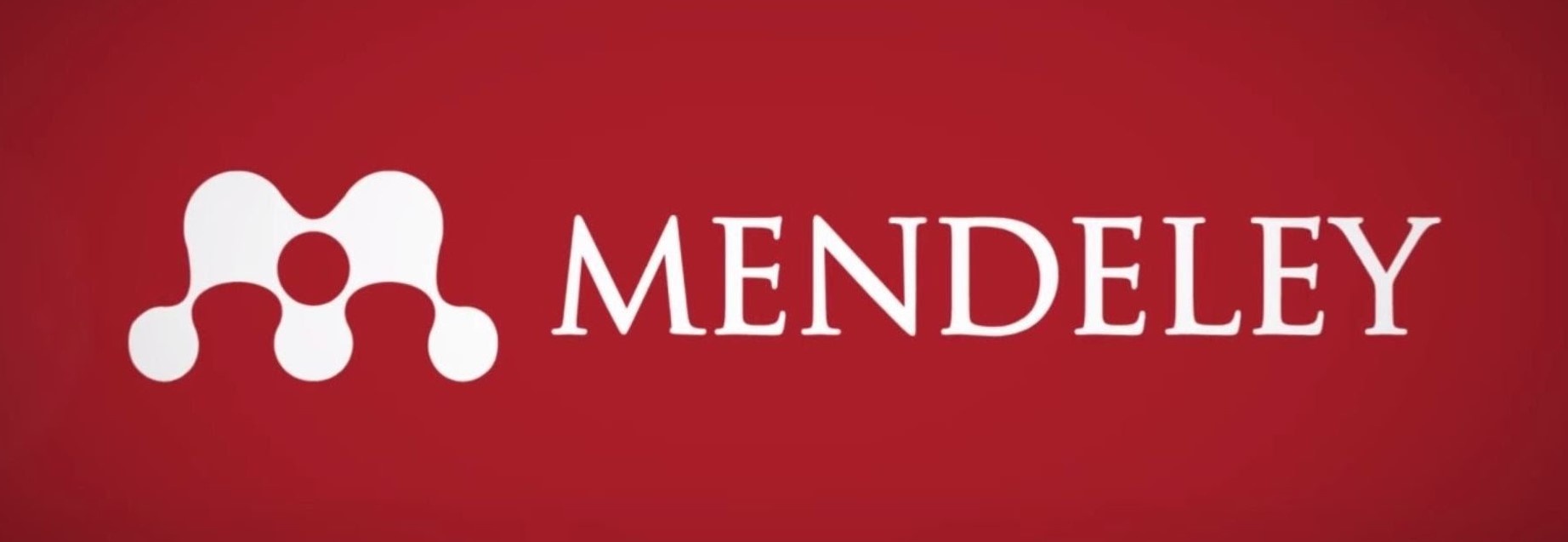PKM internasional Indonesia vs Malaysia aplikasi blockchain inovasi technopreneurial
Abstract
Abstrak
Kegiatan PKM internasional antara Indonesia dan Malaysia bertujuan membentuk blockchain bagian dari teknologi terdesentralisasi yang menarik pengembangan solusi technopreneurial di berbagai sektor, termasuk di Indonesia dan Malaysia. Kegiatan ini berfokus pada potensi aplikasi blockchain dalam memperkuat ekosistem inovasi dan kewirausahaan teknologi kedua negara tersebut. Tujuan utama dari Program pengabdian kepada masyarakat (PKM untuk mengeksplorasi dan membandingkan peluang blockchain sebagai fondasi bisnis digital yang lebih transparan, efisien, dan aman. Kegiatan dilakukan terhadap beberapa sektor potensial, seperti fintech, logistik, dan pendidikan. Hasil pengabdian kepada masyarakat menunjukkan bahwa meskipun Indonesia dan Malaysia menghadapi tantangan yang serupa, seperti regulasi yang belum mapan dan resistensi terhadap adopsi teknologi baru, keduanya memiliki kekuatan unik. Indonesia unggul dalam potensi pasar domestik yang besar, sementara Malaysia lebih maju dalam hal infrastruktur teknologi dan regulasi blockchain. PKM ini merekomendasikan kolaborasi antara pelaku usaha dan pemerintah dari kedua negara untuk mempercepat adopsi blockchain melalui pertukaran pengetahuan dan pengembangan kebijakan yang pro-aktif. Program pengabdian kepada masyarakat guna menciptakan ekosistem yang mendukung, mahasiswa, dosen antar negara untuk mengembangkan inovasi dengan mendorong technopreneur muda dalam pengembangan solusi blockchain.
Kata Kunci: blockchain; technopreneurship; inovasi; ; ekosistem digital; pertukaran pengetahuan.
Abstract
The international PKM activity between Indonesia and Malaysia aims to form blockchain as part of a decentralized technology that attracts the development of technopreneurial solutions in various sectors, including in Indonesia and Malaysia. This activity focuses on the potential of blockchain applications in strengthening the innovation and technology entrepreneurship ecosystem of the two countries. The main objective of the Community Service Program (PKM) is to explore and compare blockchain opportunities as a foundation for a more transparent, efficient, and secure digital business. Activities are carried out in several potential sectors, such as fintech, logistics, and education. The results of community service show that although Indonesia and Malaysia face similar challenges, such as undeveloped regulations and resistance to the adoption of new technologies, both have unique strengths. Indonesia excels in its large domestic market potential, while Malaysia is more advanced in terms of technology infrastructure and blockchain regulations. This PKM recommends collaboration between business actors and governments from both countries to accelerate blockchain adoption through knowledge exchange and proactive policy development. The community service program aims to create a supportive ecosystem, students, lecturers between countries to develop innovation by encouraging young technopreneurs in developing blockchain solutions.
Keywords: blockchain; technopreneurship; innovation; ; digital ecosystem; knowledge exchange
Keywords
Full Text:
PDFReferences
Amend, Julia, Julian Kaiser, Lucas Uhlig, Nils Urbach, and Fabiane Völter. 2021. ‘What Do We Really Need? A Systematic Literature Review of the Requirements for Blockchain-Based E-Government Services’. Lecture Notes in Information Systems and Organisation 46(October):398–412. doi: 10.1007/978-3-030-86790-4_27.
Aysan, Ahmet Faruk, Behar Sadriu, and Humeyra Topuz. 2020. ‘Blockchain Futures in Cryptocurrencies, Trade and Finance: A Preliminary Assessment’. Buletin Ekonomi Moneter Dan Perbankan 23(4):525–41. doi: 10.21098/BEMP.V23I4.1240.
Bayar, Yilmaz, Marius Dan Gavriletea, and Dragoş Păun. 2021. ‘Impact of Mobile Phones and Internet Use on Financial Inclusion: Empirical Evidence from the Eu Post-Communist Countries’. Technological and Economic Development of Economy 27(3):722–41. doi: 10.3846/tede.2021.14508.
Bodkhe, Umesh, Sudeep Tanwar, Karan Parekh, Pimal Khanpara, Sudhanshu Tyagi, Neeraj Kumar, and Mamoun Alazab. 2020. ‘Blockchain for Industry 4.0: A Comprehensive Review’. IEEE Access 8:79764–800. doi: 10.1109/ACCESS.2020.2988579.
Crittenden, Victoria L., William F. Crittenden, and Haya Ajjan. 2019. ‘Empowering Women Micro-Entrepreneurs in Emerging Economies: The Role of Information Communications Technology’. Journal of Business Research 98(May 2018):191–203. doi: 10.1016/j. jbusres. 2019.01.045.
Elsharif, Tarek Abdelhafid. 2018. ‘The Impact of Accountants Participation in Development for Computerized Accounting Information Systems on the Success of These Systems’ Performance’. OALib 05(11):1–16. doi: 10.4236/oalib.1104995.
Gao, Yanyan, Leizhen Zang, Antoine Roth, and Puqu Wang. 2017. ‘Does Democracy Cause Innovation? An Empirical Test of the Popper Hypothesis’. Research Policy 46(7):1272–83. doi: 10.1016/j.respol.2017.05.014.
Hansen, Don R., and Maryanne M. Mowen. 2007. Managerial Accounting, 8th Edition.
Hertati, Lesi. 2024. ‘Exploring Human Capital Dalam Tingkat Akuntansi Mengatasi Deteksi Fraud Pada Aplikasi Shopee Exploring Human Capital At The Education Level The Role Of Accounting Information System Applications In Overcoming Fraud Detection IN’. 16(1):74–92.
Hertati, Lesi, and Lilis Puspitawati. n.d. ‘Determinan Perilaku Etika Pada Sistem Whistleblowing Implikasi Pada Detection Fraud’. 83–98.
Hertati, Lesi, Lili Syafitri, and Otniel Safkaur. 2023. ‘Exploring Pembelajaran Berbasis Game Digital Akuntansi Didalam Dunia Pembelajaran Exploring Digital Accounting Game-Based Learning in the World of Learning’. 159–70.
Hertati, Lesi, and Haryono Umar. 2024. ‘Illegal Oil Well Mitigation : Environmental Sustainability : Strengthening the Oil and Gas Accounting Information System’. 07(02):200–218.
Hertati, Lesi, and Yuliasnyah. 2024. ‘Exploring Aplikasi Gojek Dalam Mencapai Laba Organisasi ( Exploring the Gojek Application in Achieving Organizational Profits )’. 2(2):123–37.
Hertati, Lesi, Wahyudin Zarkasyih, Harry Suharman, and Haryono Umar. 2019. ‘The Effect of Human Resource Ethics on Financial Reporting Implications for Good Government Governance (Survey of Related Sub-Units in State-Owned Enterprises in Sumsel)’. International Journal of Economics and Financial Issues 9(4):367–76. doi: 10.32479/ijefi.8466.
Javaid, Mohd, Abid Haleem, Ravi Pratap Singh, Rajiv Suman, and Shahbaz Khan. 2022. ‘A Review of Blockchain Technology Applications for Financial Services’. BenchCouncil Transactions on Benchmarks, Standards and Evaluations 2(3):100073. doi: 10.1016/j.tbench.2022.100073.
Puspitawati, Lilis, Lesi Hertati, Wahyudin Zarkasyi, Harry Suharman, and Haryono Umar. 2022. ‘The Environmental Uncertainty, Manager Competency and Its Impact on Successful Use of Financial Applications in the Covid-19 Pandemic Era’. Journal of Eastern European and Central Asian Research 9(1):10–20. doi: 10.15549/jeecar.v9i1.882.
Hertati.L, and Syafitri. 2024. ‘Financial : Jurnal Akuntansi Peran Sistem Akuntansi Manajemen Lingkungan Dalam Menciptakan Inovasi Produk. Program Studi Akuntansi Fakultas Ekonomi Universitas Indo Global Mandiri Palembang-Indonesia Akuntansi Manajemen Lingkungan Tidak Hanya Yang Disiplin’. 10(September):249–64.
Tellman, Beth, Hallie Eakin, Marco A. Janssen, Felipe de Alba, and B. L. Turner. 2021. ‘The Role of Institutional Entrepreneurs and Informal Land Transactions in Mexico City’s Urban Expansion’. World Development 140:105374. doi: 10.1016/j.worlddev.2020.105374.
Tsianaka, Eleni, and Dimitra Seretidou. 2023. ‘Financial Evaluation and Viability of Businesses Using Information Systems after the Implementation of the Greek Accounting Standards’. Theoretical Economics Letters 13(04):905–31. doi: 10.4236/tel.2023.134052.
Uddin, Md Ashraf, Andrew Stranieri, Iqbal Gondal, and Venki Balasubramanian. 2021. ‘A Survey on the Adoption of Blockchain in IoT: Challenges and Solutions’. Blockchain: Research and Applications 2(2):100006. doi: 10.1016/j.bcra.2021.100006.
Waluyo, Ponco, Hapzi Ali, and Corresponding Author. 2023. ‘Pengaruh Bisnis Model, Bisnis Proses Dan Struktur Organisasi Terhadap Sistem Informasi Operasi’. Jemsi 5(1):72–79.
DOI: https://doi.org/10.31764/jpmb.v9i3.30399
Refbacks
- There are currently no refbacks.

This work is licensed under a Creative Commons Attribution-ShareAlike 4.0 International License.
______________________________________________________
Jurnal Selaparang
p-ISSN 2614-5251 || e-ISSN 2614-526X
EDITORIAL OFFICE:



















